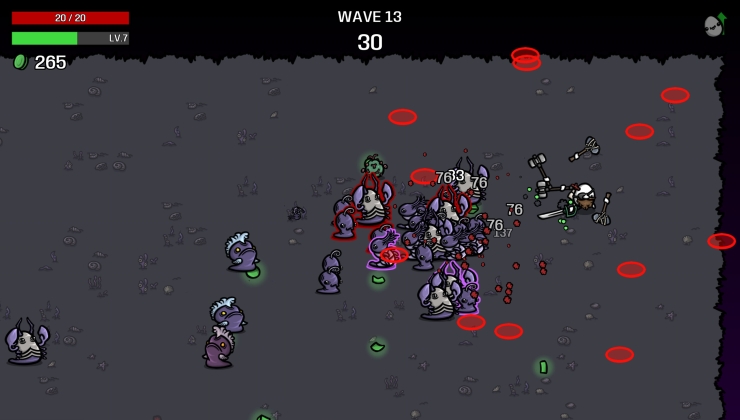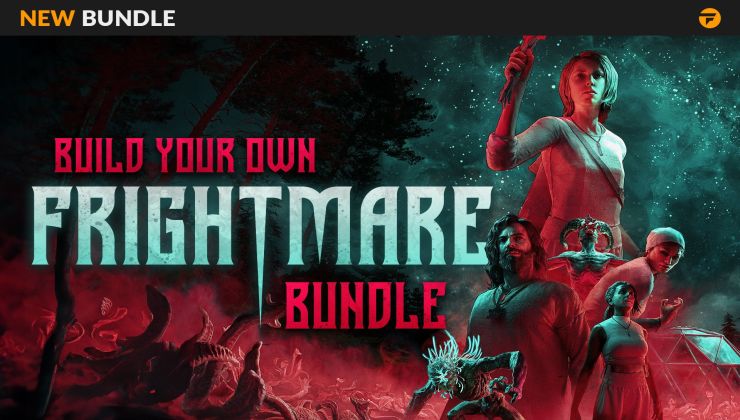Epic Games latest acquisition is RAD Game Tools, one a great many game developers will be familiar with. As confirmed on the official Epic Games news post, the plan is to integrate RAD tooling into Unreal Engine.
RAD tooling is used by close to 25,000 games, according to the post, making it massively popular. Probably the most well-known of their tools by gamers is Bink Video and you might have seen a logo of it across some of your favourite games going back to the 90's.
As graphics in game development and beyond become more photorealistic and powerful, developers need best-in-class compression software that can manage increased data requirements without compromising quality. Members of the RAD team will partner closely with Epic’s rendering, animation, insights, and audio teams, integrating key tech and improvements across Unreal Engine and beyond. RAD and Epic combining forces will allow even more developers access to tools that make their games load and download faster, and offer their players a better, higher quality video and gaming experience.
Epic Games
The good news is that Epic will not be locking it down to their systems. As the post explains, RAD will continue supporting and selling licenses for their products across all industries and those that don't use Unreal Engine.
So now Epic Games own Psyonix (Rocket League), Quixel (Megascans), SuperAwesome (kids digital media ecosystem), Hyprsense (facial motion capture), Easy Anti-Cheat and no doubt that list will grow.
Quoting: bisbyxQuoting: DribbleondoWhy would they? If EAC and other acquisitions are to go by, they have no interest in locking SDK's and services pertinent to other game engines to their platform because if anything, it helps them. They indirectly benefit from contracts made by RAD and others.
You mean like rocket league?
Rocket League is not an SDK or a developer service.
Quoting: DribbleondoHow would Linux games be collateral, exactly?
Easy to see, isn't it?
If they lock their IDEs/Assets/Tools down to EPIC store, which is not on Linux, then there will be less games working on Linux.
Even Linux native Titles will not be present any more.
So that may be (perhaps this does never happen), a massive damage to Linux gaming.
Quoting: MordragI am sure that the decision was not soley based upon epic games hating linux.
I think, Linux is just collateral damage. They do not really care about it. They do not hate Linux, but they give a shit about that 1% of Linux gaming people.
In the meantime they mentioned multiple times they'd support and love Linux, starting with their engine. Though there is so much more money to make on Windows already, they be busy busy.
Quoting: einherjarQuoting: DribbleondoHow would Linux games be collateral, exactly?
Easy to see, isn't it?
If they lock their IDEs/Assets/Tools down to EPIC store, which is not on Linux, then there will be less games working on Linux.
Even Linux native Titles will not be present any more.
So that may be (perhaps this does never happen), a massive damage to Linux gaming.
That was a rhetorical question; which should've been obvious as I explained why this wouldn't be the case immediately after said question.
Last edited by Dribbleondo on 9 January 2021 at 10:01 am UTC
Quoting: aokamiLikely, the Linux market will grow thanks to steam to the point it becomes beneficial to Epic supporting Linux. They'll likely start forking proton and put some devs on their most profitable games.
In the meantime they mentioned multiple times they'd support and love Linux, starting with their engine. Though there is so much more money to make on Windows already, they be busy busy.
Why fork Proton? Couldn't they just use it as-is?
Quoting: ShmerlQuoting: DrMcCoyOf course, newer codecs are more complex with more features, so this isn't that pronounced anymore, but with Bink, drawn and rendered sequences are a main focus, not a distant consideration.
Do you know if AV1 and whatever they are working on as its successor can address this for games sufficiently good?
One issue with AV1 compared to Bink is the sheer cost of decoding. It's even worse if you have to decode it on the CPU, which is likely as hardware support isn't quite common yet.
Even VP8/VP9 suffer from those issues enough to make them difficult to use in mobile games (or low-end desktop). Integration is also not as easy as one might think. When WebM video support was added to Godot (manually, without going through FFmpeg), it ended up being full of bugs. But it seems we'll have to use FFmpeg as an optional plugin just because *video playback is hard*.
In general, it seems the state of open source video formats isn't great as soon as you leave the "typical home video" use case. For instance, there doesn't appear to be an open source equivalent of HAP, a popular format in various professional appliances.
Last edited by Calinou on 10 January 2021 at 12:05 am UTC
Quoting: CalinouOne issue with AV1 compared to Bink is the sheer cost of decoding. It's even worse if you have to decode it on the CPU, which is likely as hardware support isn't quite common yet.
I think all modern SoCs and GPUs should support AV1 decoding in hardware. AMD RDNA 2 cards do that already, which possibly means that modern consoles can do that too? I don't think this is going to remain an issue for long, given that AOM which oversees AV1 put a lot of effort into making it ubiquitous.
Last edited by Shmerl on 10 January 2021 at 1:20 am UTC









See more from me